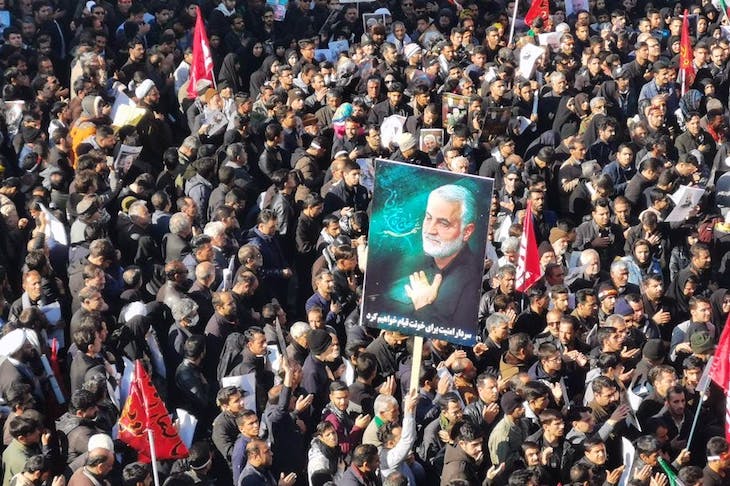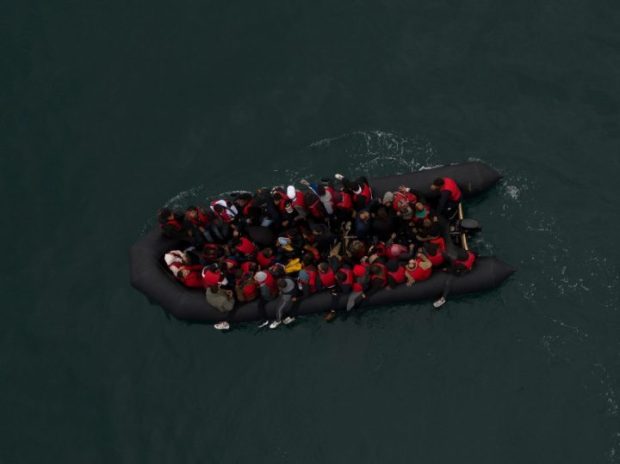So it happened. Iran has just struck back against the United States for its killing of Quds force chief Qassem Soleimani on 3 January. The Iranians had vowed to retaliate from almost the moment that their most potent – and famous – commander was killed. Iran’s leader Ali Khamenei had vowed a “severe revenge.” Now it has come. And while it may not so far be “severe “exactly, it was undoubtedly swift and it was bold.
Details are still pouring in about the strike but it is clear that Iran has struck two bases housing US and coalition forces in Iraq with more than a dozen missiles. The strikes targeted the Al-Asad airbase located in the Anbar province of western Iraq, which was hit by at least six missiles, and another in the city of Erbil, in the country’s northern Kurdish enclave. There appear to be no US casualties though a damage assessment is still underway.
What is now clear is that we have entered the next stage of this most volatile, and dangerous, of dramas. Iran has wasted no time in claiming responsibility for the attack. “We are warning all American allies, who gave their bases to its terrorist army, that any territory that is the starting point of aggressive acts against Iran will be targeted,” said Iran’s state-run IRNA news agency.
Meanwhile, Iran’s most senior figures have come out in support of the strikes. Tehran has decided that unlike some of its actions in the past, which it has carried out through proxies to give it a degree of deniability, retaliation for Soleimani will be seen to come from the highest levels.
And so shortly after news of the strikes broke Iranian foreign minster Javad Zarif tweeted his support. “Iran took & concluded proportionate measures in self-defense under Article 51 of UN Charter targeting base from which cowardly armed attack against our citizens & senior officials were launched. We do not seek escalation or war, but will defend ourselves against any aggression,” he said.
US president Donald Trump has so far remained customarily bullish, tweeting in response to the news:
“All is well! Missiles launched from Iran at two military bases located in Iraq. Assessment of casualties & damages taking place now. So far, so good! We have the most powerful and well equipped military anywhere in the world, by far! I will be making a statement tomorrow morning.”
Both sides remain defiant while the stakes have nonetheless been raised. The onus is now on the United States. Iran has been clever. It has struck a US target head on but it has taken no American lives, which it could easily have been sure of doing in any number of ways. Only one question now matters: How will Washington respond?
In striking the ‘Great Satan’ head on and indeed taking full – and indeed somewhat bombastic – responsibility for doing so, Iran can tell its population that it responded unequivocally to the death of their favourite son. The United States, for its part, can be said to have suffered a blow that is little more than symbolic, with merely limited damage to facilities and not people. The tit has now received its tat. And it has not been too much to stomach. Under normal circumstances this might be seized upon by both sides to allow for a de-escalation.
But these are not normal circumstances. Donald Trump and not Barack Obama now sits in the White House. And the world will now look to him, hoping that he responds with calm and reason but terrified that he will continue to act without care for either, and drag the West one step close to a Middle East war that will affect us all.
Got something to add? Join the discussion and comment below.
Get 10 issues for just $10
Subscribe to The Spectator Australia today for the next 10 magazine issues, plus full online access, for just $10.




















Comments
Don't miss out
Join the conversation with other Spectator Australia readers. Subscribe to leave a comment.
SUBSCRIBEAlready a subscriber? Log in